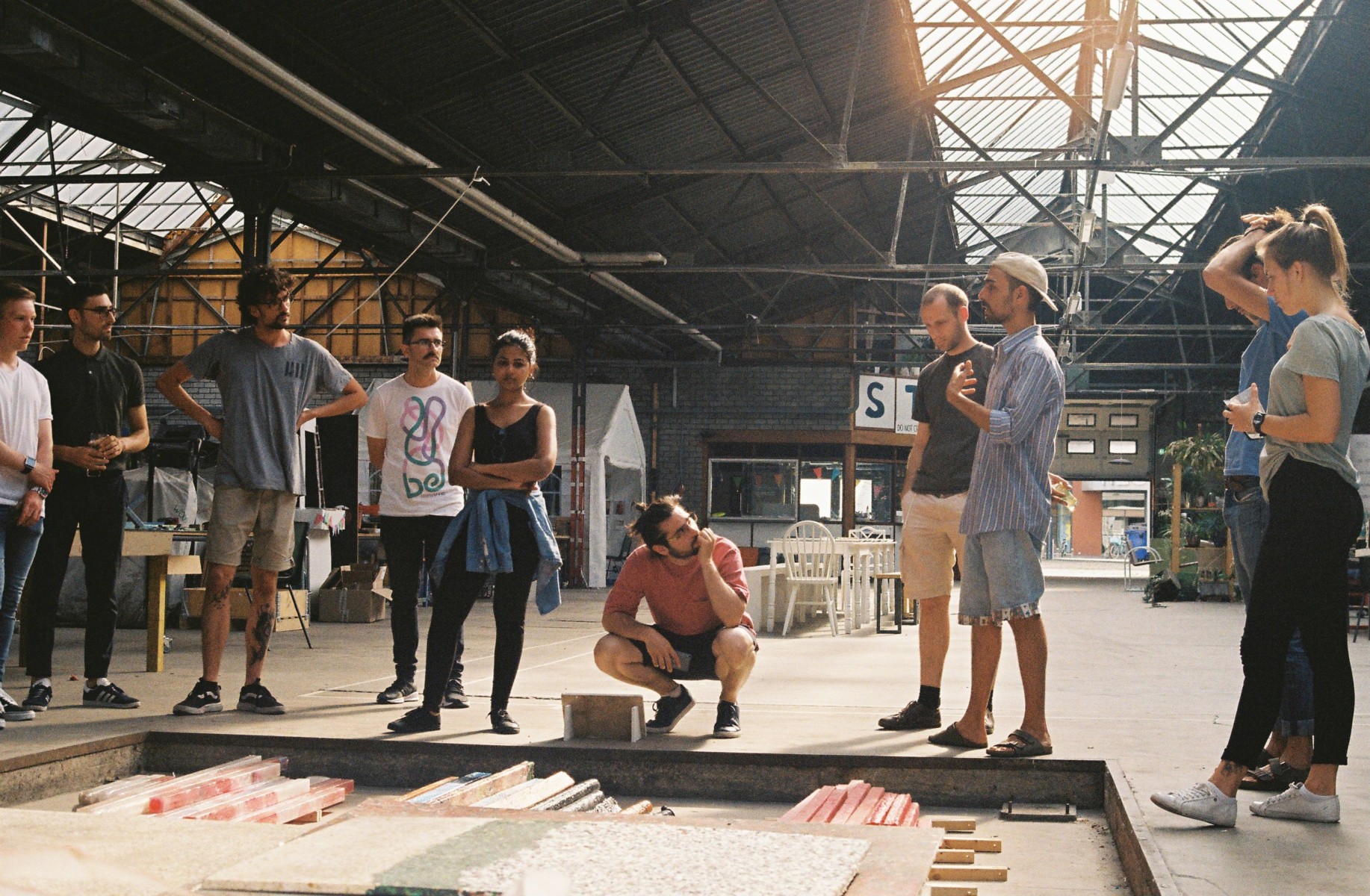
Flexible Urbanism
City making with makerspaces and circular economy aspirations
What can policy makers do to engage with flexible urbanism?
In a society that increasingly deals with deep uncertainty, the need for broadening of how we think about and connect with interlinked resources within city regions is imminent, but not straightforward. Such necessity includes discussing how to build decision-making infrastructure that supports dynamic adaptation over time. Moreover, exploring innovative frameworks for decision-making and collaboration is key to fostering the transition towards a more circular future.
Planners are not limited to “how” (re-calibrating how we make decisions, considering participatory or co-creation processes) and “who” (enlarging who is partaking in decision making), but also improving “what” to focus within the different layers that compose a city. While urban planning deals with different layers of the urban environment, planners also work on orchestrating different stakeholders and interests involved in each of these. The approach and role of urban planners have changed deeply in the last 50 years.
Planners in public administration usually held a big share of power in urban change. Nevertheless, the increasing variety of stakeholders involved in planning and their shifting power-relations have made planners adopt different roles nowadays, from process planners to network managers, or advocacy planners.
The built environment is ultimately made by the people and for the people.
What can civil society and makers do to engage with flexible urbanism?
There is a growing body of knowledge and tools on participatory approaches for citizens and civic organisations involvement in planning processes. Thus, advancing schemes for urban metabolism, urban and spatial planning, and flexible urbanism are not only a technical exercise for planners and experts, they are a civic matter too.
Changing spatial and social landscapes would require a diversity of interventions – in contrast to prescriptive, finite, and rigid development; thus, increasing the city’s capacity to manage change (in economic, social, and environmental systems).
A (commons-based and polycentric) collaborative approach towards flexible urbanism, acknowledges existing power balances and asymmetries.
Discover what are the potential interventions towards flexible urbanism by checking a set of practical recommendations below. We believe they could facilitate a transition in governance towards flexible urbanism, considering the interdependences between city life and spatial planning. Envisioning a metabolic adaptation over time that already maps and values existing urban assets, flexible urbanism should consider inclusive principles, such as but not limited to:
- Urbanism that is iterative, open-access, commons-based and polycentric
- Careful zoning regulations
- Malleable approach to master planning
- Supportive for everyday urban experience interactions
- Adaptive, capable of absorbing city daily activity-intensity
- Inclusive, integrated spatial principles
- (At the centre) consider the more fragile urban communities
- Collective aims and sense of justice
- Stimulating the essence out of city life
- Space for urban acupuncture (strategic spatial location of interventions)
- Recognizes the role of design, time, and space in making cities more liveable
Daily city life practices that could help to overcome social, ecological and economic challenges in a systematic manner, contributing to a fertile urban metabolism and a more flexible approach to urban planning.
Why does Fab Lab Barcelona choose a civic rather than institutional approach to flexible urbanism?
Cities require a holistic and interdisciplinary approach for informed decision making. Reframing the urban debate vision and integrating notions of circularity may favour more elastic environments that tolerate heterogeneity and accept change.
A growing number of citizens and civic organisations (nonprofits, grassroots) are capable of contributing to the urban planning dialogue. One of the great challenges of this century is how to connect different scales and expertise for transformative change across the whole system and individuals that is also a reality in urban-spatial planning. A set of strategies on urban/spatial planning involving specific grassroots stakeholders take part in producing a change for urban changes. Facilitating the change involves providing the analytical and practical tools to engage reflexively with urban development and planning challenges. Flexible urbanism can flourish from public and private actors and mature from emerging industries to cities and regions, SMEs, Fab Labs, and multi-sector corporations.
What are some unfolding practices that YOU can do to connect with such a strategic vision of the future?
- Commit to short-term actions
- Establish a framework to guide future actions
- Embrace urban metabolism with urban/spatial planning
- Advocate for inclusive strategies that contribute to such an organic narrative for flexible urbanism
- Strategize (and act!) for multi stakeholder governance
- Collectively reflect on the solution of complex challenges
- Involve as much as possible diverse stakeholders in local policy decision-making
- Get informed about circular economy and flexible urbanism
But what really is the connection between city making and the actual ‘makers’?
Inspired by the REFLOW pilot cities, Amsterdam, Berlin, Cluj-Napoca, Milan, Paris and Vejle, Fab Lab Barcelona compiled in an easy-to-read document six concise case studies aimed at capturing barriers and challenges that cities have been facing to develop a systematic and replicable flexible urbanism. Based on this knowledge, the report provides potential recommendations for policymaking following a people-centred approach.
👉 Discover the REFLOW policy proposals and find more information about the REFLOW project can be found at https://reflowproject.eu/ .
👉 Take a look at Fab Lab Barcelona’s circular economy projects & approach.